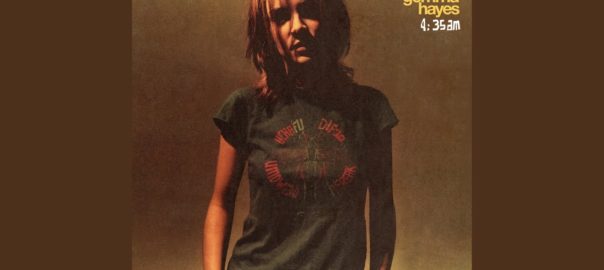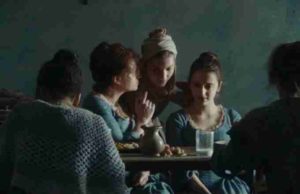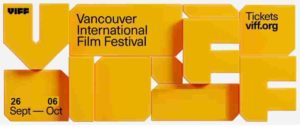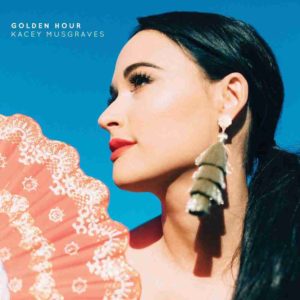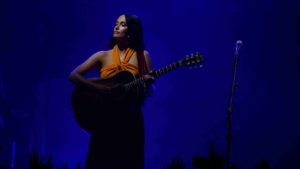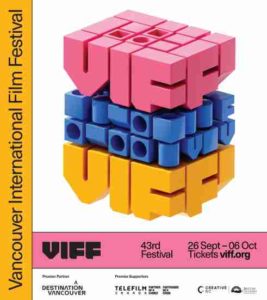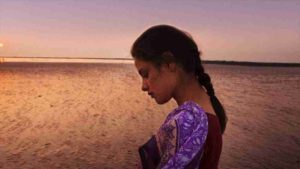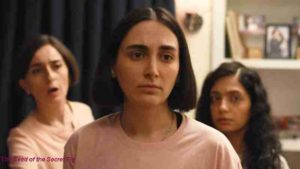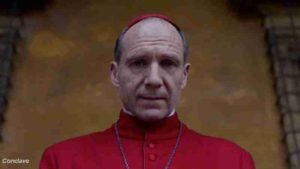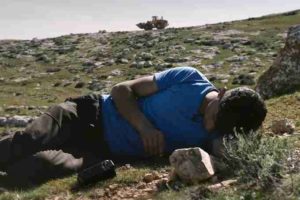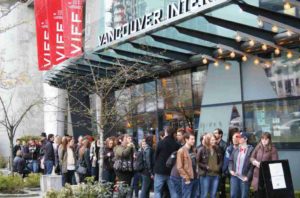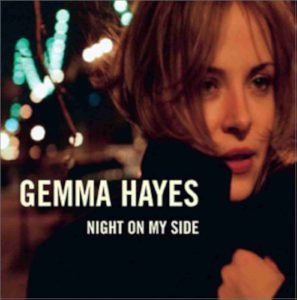
Gemma Hayes has more than the night on her side.
Born in the tiny village of Ballyporeen in Ireland’s Tipperary county, Hayes leaned on music and poetry from an early age to combat the inevitable feelings of small-town isolation. While she relocated to Dublin to attend the city’s University College following her stint at boarding school, she ultimately abandoned her studies to focus squarely on her true life’s calling to write and perform songs.

Hayes soon became a turn of the century staple in the raucous Dublin music scene, and her steadfast devotion to her craft was rewarded when Source Records signed her to a recording contract in 2001.
Gemma Hayes’ EP 4:35am, released in 2001. This is the title song.
A pair of extended play releases followed before the year was over, with the fragile acoustics of 4:35am and Work To A Calm setting the stage for the arrival of her début album in her native Ireland and the UK in May of 2002.
Recorded at the famed Tarbox Road Studios in Western New York State, Night On My Side was produced by acclaimed soundsmith, Mercury Rev co-founder and Tarbox proprietor Dave Fridmann (The Flaming Lips, Luna, Sleater-Kinney), with co-production duties handled by Dave Odlum who has helmed the boards for Hayes’ last three albums.
Harnessing inspiration from the likes of My Bloody Valentine and PJ Harvey, among other influences, Hayes’ inaugural LP unfurled as a dynamic dichotomy of sounds, all underpinned by her reassuring, hypnotic vocals and heart-laid-bare introspection devoid of pretense.
With the release of 2002’s Night on My Side, Fridmann blended 4:35am’s acoustica with, well, noise, as he set about to layer Hayes’ melodic sonic texture, filling the nooks and crannies of her songs with intriguing swirls.
While a handful of standout tracks are stormers awash in multi-layered, enveloping sonic dissonance, it is their juxtaposition with the sparser, acoustic compositions that produces a gorgeous mélange of melodies, tones and flourishes that can’t help but seduce the listener’s sensibilities with each subsequent listen.
Day One, the lead-off song on Gemma Hayes’ Night on My Side
Night on My Side opens with the dreamy intro Day One that quickly enchants you with its soothing melody, but before you know it you’re given a wake up call with the first single off the album, Hanging Around. Full of juicy guitar riffs and a great chorus its a cool n’ catchy pop song.
Over and Over, from Gemma Hayes’ 2002 début LP, Night on My Side.
And so, after the first two tracks, you’re given a clear idea of what to expect for the rest of the album. There are the softly spoken acoustic guitar songs that can transfix you with their beauty, as with the gorgeously well-wrought Over and Over, the harmonizing strings just make the song for me totally. Wait until you hear them, it feels like giving your brain a sonic bath. This song maked me think of comparisons to PJ Harvey; it’s more apparent in the way she sings some of the lines.
Ran for Miles. Gemma Hayes | Night on My Side. Far and away, my favourite song on the album.
Then there’s my favourite song on the album, which kept me alive in 2002.
Ran for Miles. I don’t know how Dave Fridman did it, but he managed to make something as simple as a bass drum beat totally blow me away. It hits me every time. The song is another of the more acoustic songs from the album and it is simply outstanding. I used to run from Jericho Beach through Locarno Beach towards Spanish Banks East, full speed until I collapsed onto the grass, a testament to the fact that I was still alive — if barely, as I struggled to catch my breath — that I still existed on this planet, that my too often fragile health — both physical and mental — remained as strong and vibrant as was necessary.
Tear on My Side. Another rocker on Gemma Hayes’ Night on My Side.
There are the indie rock songs like Tear in My Side that will force your head to nod, your legs to tap and your mouth to smile. Every part of this song makes me want to sigh in that life-is-great-the-sun-is-shining kind of way. The chorus. The second verse when the male harmony comes in. The middle eight.
What A Day | Gemma Hayes | Night on My Side.
There is, of course, the exception to the rule; What A Day is guitar free. In their place are electronic beats and synthesised vocals that echo around your head.
Let A Good Thing Go | Gemma Hayes | Night on My Side.
Let A Good Thing Go, the final track on the album, arguably rocks hardest on the album, with thrashing, discordant guitars and a fevered percussion soundtracking of Hayes’ examination of romantic stagnation and the harbouring of regret. The memorable guitar riff is sure to stick in your mind for hours after hearing the song, which is exactly what a great song should do, this song a counterpoint to the more delicate acoustic songs on the album.
The album’s more subdued songs may not keep your heart racing and ears buzzing to the extent that many of the albums louder tracks do, but what they lack in frenetic energy, they more than make up for by way of their emotional resonance.

Not to mention, Hayes’ crystalline vocals and confessional lyrics are elevated to the forefront, allowing her raw vulnerability to shine through, rather than being overpowered by a dense wall of sound.
First and foremost, the Irish singer-guitarist has a gorgeous, sultry and hypnotically intoxicating voice that bridges melancholy fragility and emotional intensity in a manner that evokes comparison to Joni Mitchell and Beth Orton.
Secondly, Gemma Hayes puts it to work in the service of songs that mix a sort of strummy introspective folktronica with crunchy alt-pop songcraft.
And last but certainly not least, on her dozen-track Night On My Side début — which was released in 2002 in a slightly different, and I would say better form in the UK (I ordered the much preferable British CD at the time, the layout of the songs more organic and listenable) from the album release in North America.
Final thought.
There’s an innocence about Night on My Side that’s like slow dancing at twilight, which most decidedly sets Night On My Side apart from all the rest.
